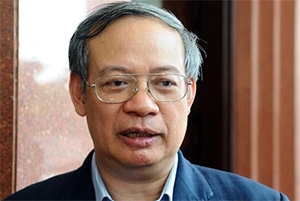Setting groundwork to resolve land issues
 Many deputies want the amended Land Law draft version passed during the National Assembly on-going fifth session. This is possible?
Many deputies want the amended Land Law draft version passed during the National Assembly on-going fifth session. This is possible?
The Land Law 2013 version exposes too many limitations which were mirrored through ever-increasing numbers of litigations in this field. Thereby, many deputies wanted the amended Land Law passed in the on-going session, laying ground for settling urgent issues in the land field.
However, few deputies wanted further studies, amendments and supplementations as the current amended Land Law draft version still could not address the land issues in a comprehensive manner.
In my view, the amended Land Law should not be passed at this session as important issues in land management relevant to land rates, land acquisition and compensation need to be addressed.
Is it important to wait until the amended Constitution 1992 is passed regarding Land Law approval?
It is impossible for any legal document to counter the Constitution. When the amended Constitution 1992 draft version was debated, I realised that there were opinion divergences relevant to diverse land issues, particularly to land acquisition. Hence, many deputies assumed approval of the amended Land Law should be halted until a new Constitution was in place.
The Land Law or any other legal documents must fine-tune the practice though amendments and supplementations were important.
In respect to the former amended draft Mineral Law, some deputies said further studies and amendments would be needed before it was passed as per schedule.
Consequently, the amended Mineral Law did not bring the expected effects as natural resources are still being used in a careless manner.
You said that land acquisitions, one of crucial contents, was not radically addressed in the amended Land Law. True?
Land is under the ownership of all people and the state represents people’s ownership of land. That is undeniable.
If the state allocates or subleases the land to organisations or individuals, or organisations and individuals sub-lease or purchase the land, it is under their ownership and it is protected by law.
If the state takes back the land ownership right of people serving defense and security needs for national benefits or socioeconomic development, it is important to treat people’s ownership right as towards their assets, meaning that it should be bought following market rates but not following set imposed rates. Otherwise, complaints and disputes would never end. However, when the amended Land Law is put for debate, the land ownership right should be held as an asset of organisations and individuals or not has triggered different opinions.
In fact taking back land serving socio-economic development needs was not welcomed by the people. Is it right?
The state only takes back and buys the land for socio-economic development projects having investment decisions enacted by the National Assembly, the government and the prime minister.
Other projects serving socioeconomic development, production and business wanted to use the land of organisations and individuals need to follow market rules and ensure the legitimate rights of individuals and business entities having the ownership rights.
What the stars mean:
★ Poor ★ ★ Promising ★★★ Good ★★★★ Very good ★★★★★ Exceptional
Latest News
More News
- An Phat 5 Industrial Park targets ESG-driven investors in Hai Phong (January 26, 2026 | 08:30)
- Decree opens incentives for green urban development (January 24, 2026 | 11:18)
- Public investment is reshaping real estate’s role in Vietnam (January 21, 2026 | 10:04)
- Ho Chi Minh City seeks investor to revive Binh Quoi–Thanh Da project (January 19, 2026 | 11:58)
- Sun Group launches construction of Rach Chiec sports complex (January 16, 2026 | 16:17)
- CEO Group breaks ground on first industrial park in Haiphong Free Trade Zone (January 15, 2026 | 15:47)
- BRIGHTPARK Entertainment Complex opens in Ninh Binh (January 12, 2026 | 14:27)
- Ho Chi Minh City's industrial parks top $5.3 billion investment in 2025 (January 06, 2026 | 08:38)
- Why Vietnam must build a global strategy for its construction industry (December 31, 2025 | 18:57)
- Housing operations must be effective (December 29, 2025 | 10:00)
















 Mobile Version
Mobile Version